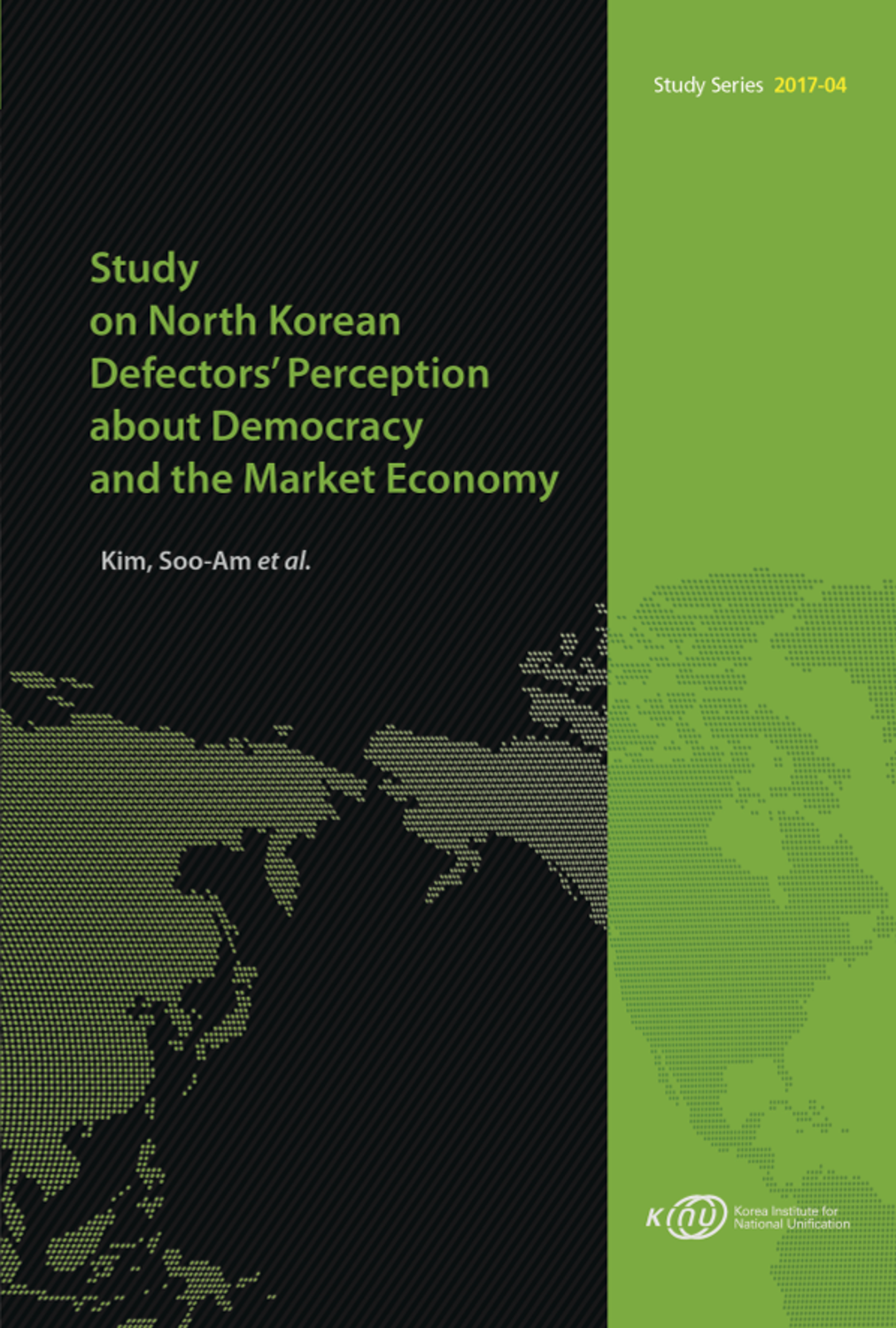
연구원발간물Study Series 2017-04
Study on North Korean Defectors' Perception about Democracy and the Market Economy
- 발행사항
- Seoul : Korea Institute for National Unification, 2017
- 형태사항
- 53p. ; 23cm
- 총서사항
- Study Series
- ISBN
- 9788984798816
- 청구기호
- 000 SS17-04
소장정보
| 위치 | 등록번호 | 청구기호 / 출력 | 상태 | 반납예정일 |
|---|---|---|---|---|
이용 가능 (2) | ||||
| 1자료실 | G0016616 | 대출가능 | - | |
| 1자료실 | G0016617 | 대출가능 | - | |
이용 가능 (2)
- 등록번호
- G0016616
- 상태/반납예정일
- 대출가능
- -
- 위치/청구기호(출력)
- 1자료실
- 등록번호
- G0016617
- 상태/반납예정일
- 대출가능
- -
- 위치/청구기호(출력)
- 1자료실
책 소개
The social conflicts and costs associated with inter-Korean institutional integration can only become minimized when the perception of North Korean residents can be reflected in the integration progress in a mutually interactive way. However, since North Koreans have experienced very different political and economic systems under the three-generational monolithic leadership and a deformed socialist planned economy, they are more likely to get confused and face challenges in the process of accepting liberal democracy and the market economy when institutional integration between the two Koreas is pursued. So it is necessary to get a grasp with how and to what extent North Korean residents understand the political and economic systems and to which level they accept such systems. The author attempted to carry out an indirect survey on the perception of North Korean defectors due to the practical limitation of not being able to conduct a direct survey on North Korean residents. Korea Institute for National Unification (KINU) primarily launched a survey on how North Korean defectors perceived the liberal democracy and the market economy in 2015 as part of a research called “the New Grand Plan for Korean Unification.”1) Into the second year of the research in 2016, the author set out to conduct a more in-depth study on North Korean perception, building on the 2015 analysis about the overall perception of North Korean defectors...
목차
1. Introduction
2. North Korean Defectors’ Perception on Integration
A. Value of Necessity for Unification
B. Reason for Unification
C. Benefits and Costs of Unification
D. Method, Conditions, and Future Landscape of Unification
E. Sub-conclusion
3. Perception on Capitalist System and South Korea’s Inequality
A. Perception on Capitalist System
B. Perception on Inequality of South Korean Society
4. Embracing Democratic Institution for North Korean Defectors
A. Party Identification of North Korean Defectors
B. North Korean Defectors’ Knowledge in Politics
C. North Korean Policy Viewed by North Korean Defectors and Their Attitude toward Policy on Defectors
D. Participation in Politics of North Korean Defectors
5. Conclusion
